
Flowers in the pouring rain: sharing impressions on the first Digital Liberation Retreat
The first ever Digital Liberation Retreat took place between the 29 October and 2 November 2024 in the peaceful landscape of Igman Mountain in Bosnia-Herzegovina.
The retreat is a key part of a programme – “A vision for digital justice organising in Europe” drafted by 30+ people over two years during the Decolonising the Digital Rights field in Europe process. As such, the Digital Liberation Retreat emerged as an essential element to fill multiple gaps in the ecosystem:
> creating a space for cross-movement connection and exchanges around digital in/justices,
> offering a space to regenerate and slow-down for organisers who are often demanded to push all their limits without never investing in their wellbeing,
> and a moment for drawing the futures we want instead of being stuck in, and reactive to, Big tech’s plans of digital technologies.
Over five days, 60+ researchers, lawyers, grassroot organisers, advocacy experts, journalists, healers, funders, and artists coming from racial, social, environmental, feminist, digital, economic, migrant, and queer justice backgrounds gathered, with people coming from around 14 countries in and outside of the Council of Europe.
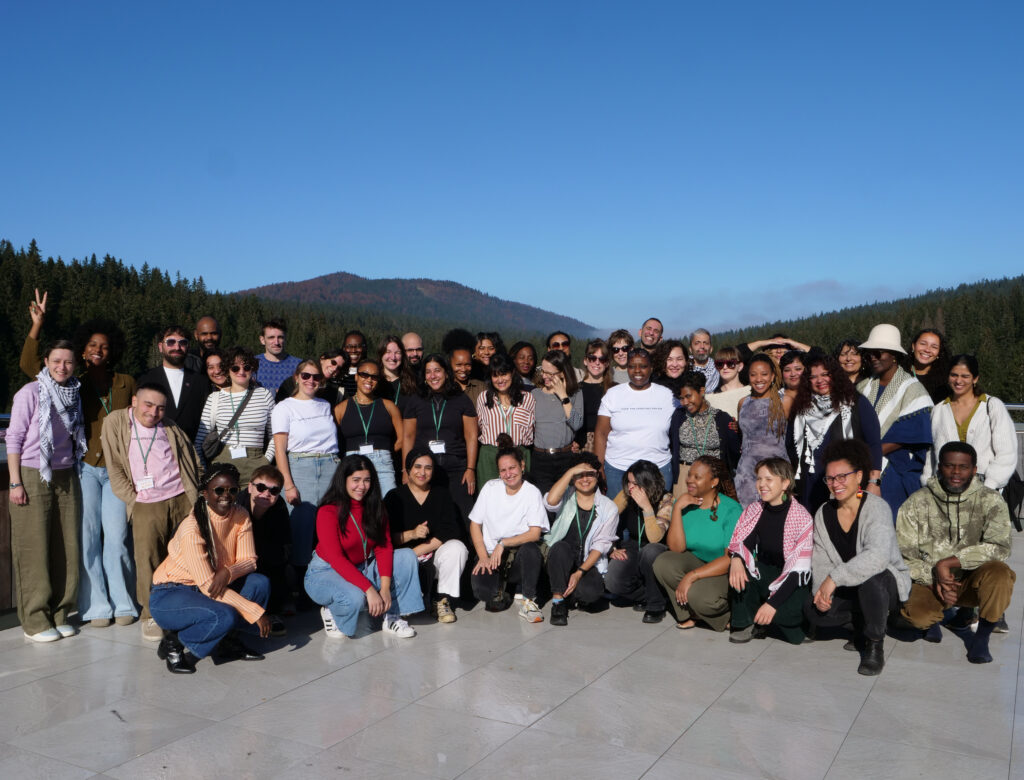
It is the first of such event in Europe. First for many reasons. It was an event organised solely by minoritised people, a majority of whom are Black women, all of them minoritised in their genders, many of them of Muslim background and/or faith, many for whose commitment to human rights and digital justice come from lived experience of war and/or genocide. It is very seldomly the case in Europe concerning digital rights or digital justice for transnational event.
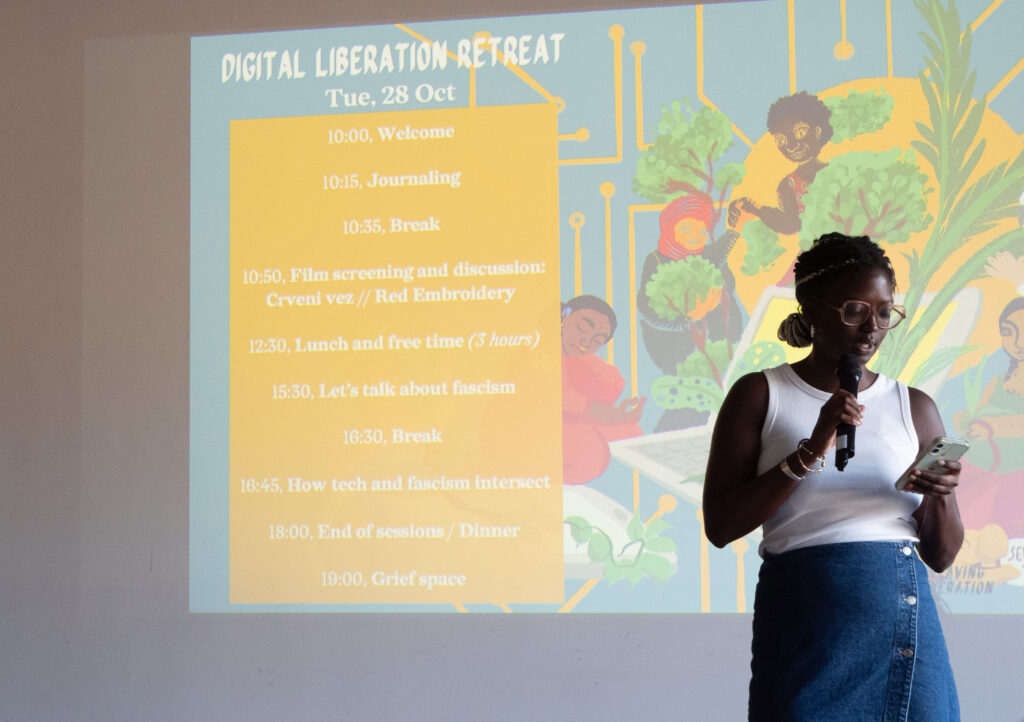

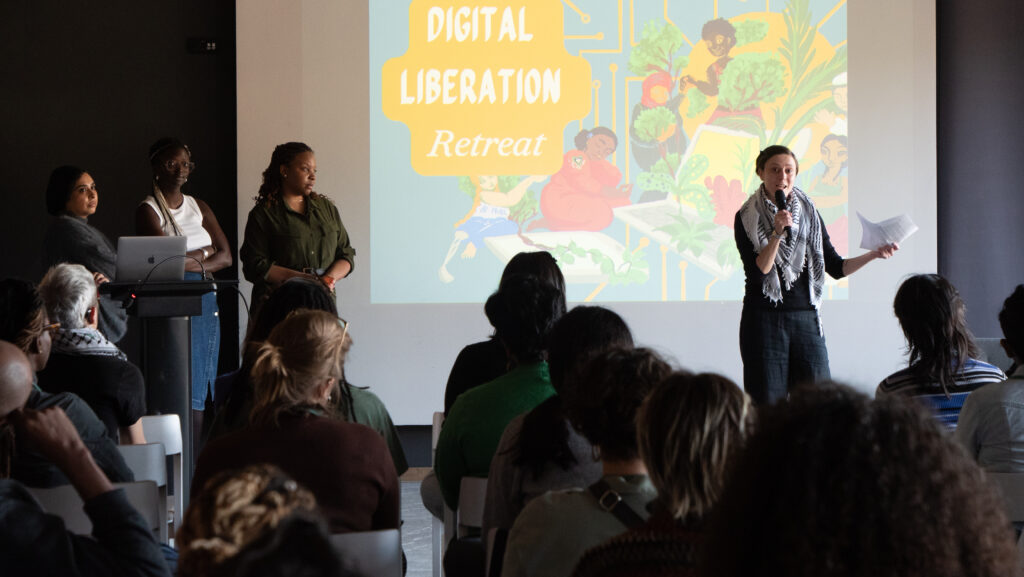
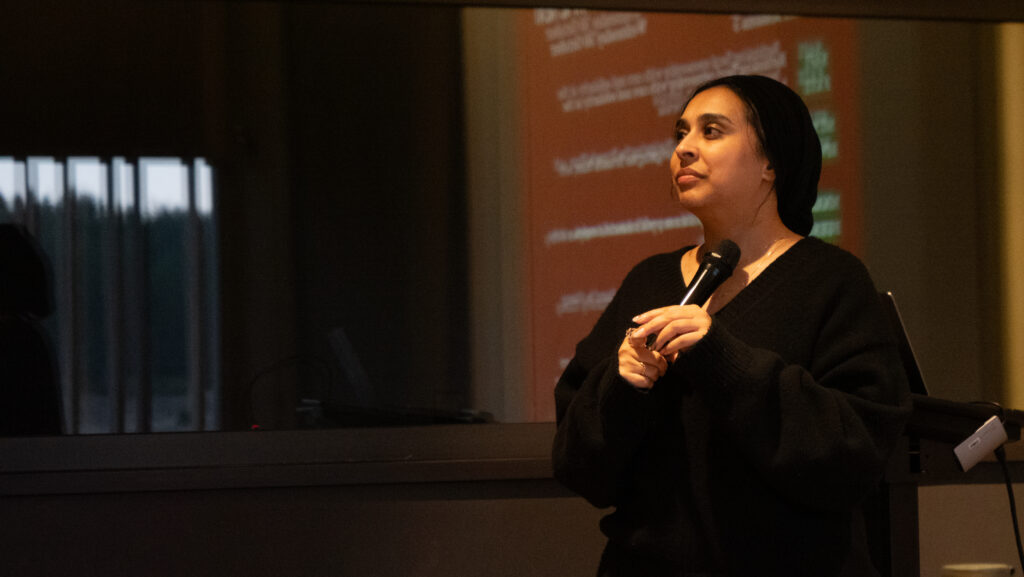
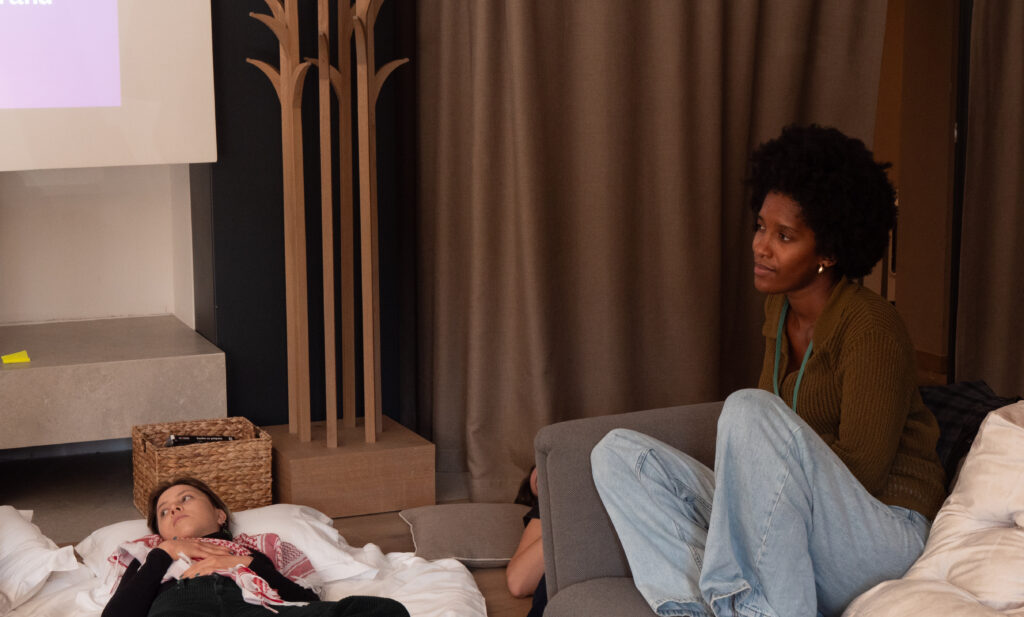
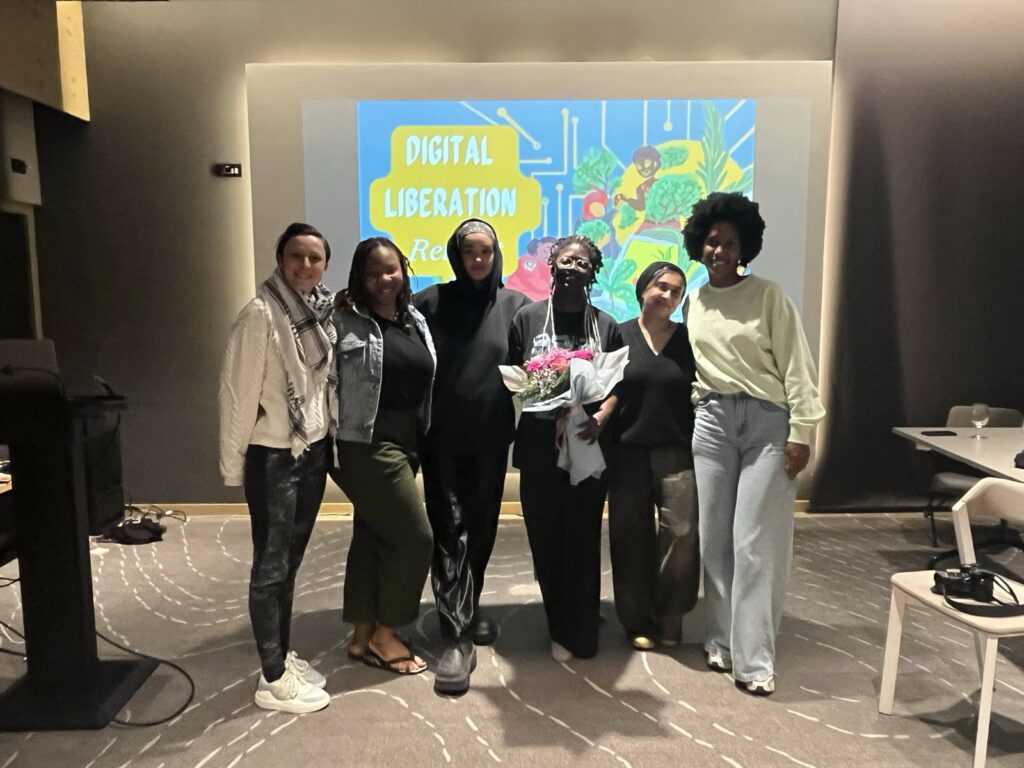
First, mainly because it is the only space in Europe where so many movements can meet to discuss digital justice and share tools of liberation.
First, finally, because no other event on digital issues of this size in Europe has been so intentional in centring rest, healing and wellbeing.
A moment to regenerate, reflect and grieve
The agenda for the week was designed following a need for spaciousness and ease expressed by many participants in the survey we sent: the days started at 10:00 and finished at 18:00 with a three-hour lunch break in between; time was carved out for journaling; and the participants had the opportunity to enjoy the spa facilities of the hotel we stayed at, go for long walks, rest in their room etc. The retreat was designed to fight a false sense of urgency. As the retreat took place in a time during which many of us are mourning incommensurable loss caused by wars and genocides and/or having to question where we belong as politics put many of us in danger, grief spaces were organised on the two first evenings respectively titled The Weight We Carry: Why Collective Grief Matters and Processing the Unseen: Being Together in Grief facilitated by Tobi Ayé a Grief worker, and trauma-informed somatic practitioner.
The spaciousness of the agenda allowed for deeper conversations to happen. The sessions were one hour and 15 minutes long (many participants shared that they would have enjoyed even longer sessions) and mostly happened in smaller groups.
Journaling exercises were planned in the beginning of the two first days to allow us to ground ourselves, the first one inviting us to reflect on our personal relationship to power, the second one regarding what the movement(s) we are part of have achieved, what they struggle with and who they need to reach out to to gain more influence.
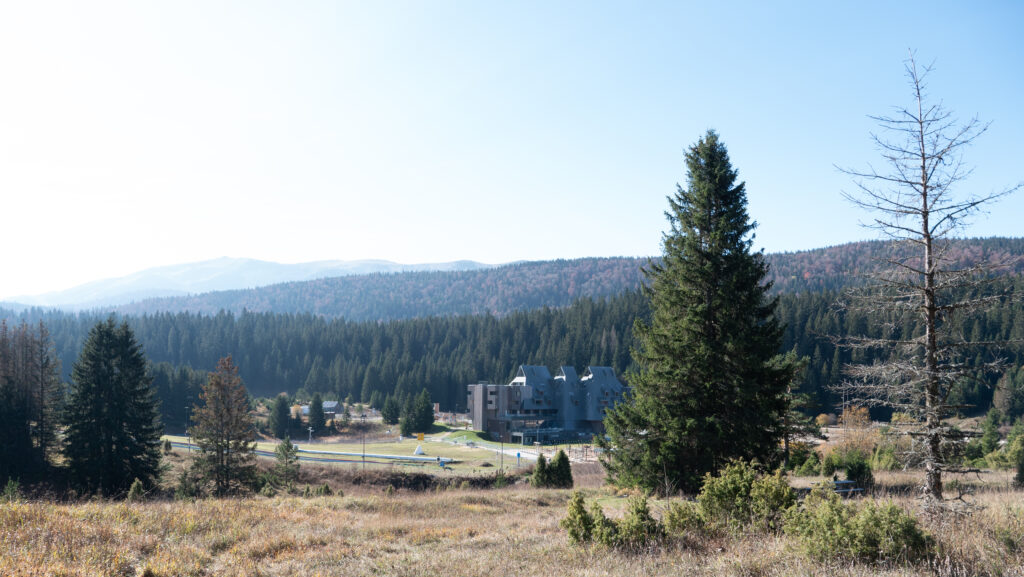
A space for cross-movement strategising
Grounding ourselves in Bosnia
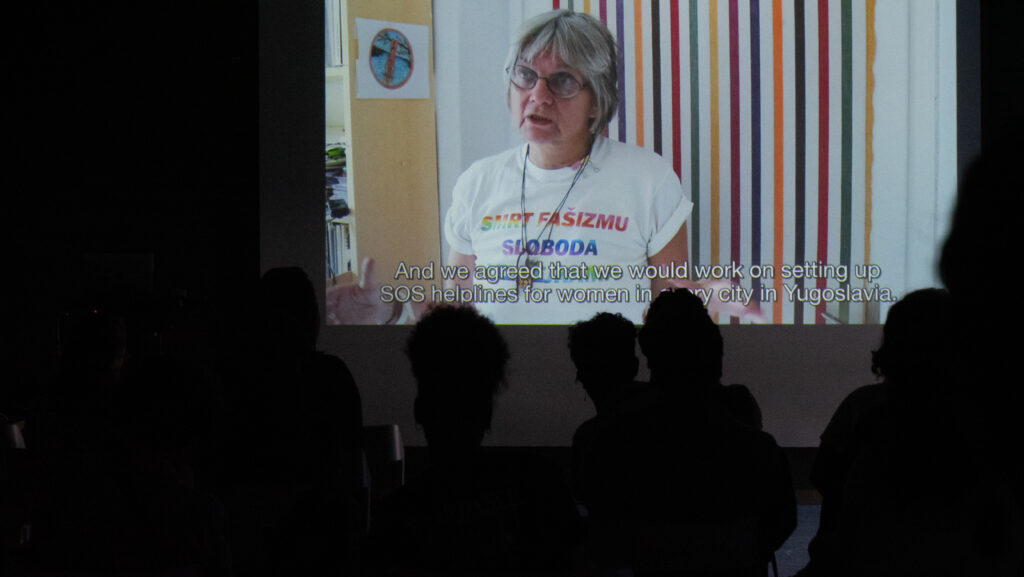
We chose the location of the retreat intentionally, to be able to ground ourselves in Bosnia’s history and present reality of deep-rooted organising and resilience in the face of genocide and conflicts, as well as the land’s rich tradition of power-sharing and anti-fascist resistance. We also wanted to ensure that we held the retreat in nature, surrounded by beautiful landscapes, giving participants an opportunity to step away from the noise, slow down and spend time outside throughout the week – something the surroundings of Mount Igman provided in abundance.
Throughout the week we had the opportunity to be with Bosnian activists who generously shared and educated us on the Bosnian political context. Together, we watched Crveni vez // Red Embroidery (Kvir arhiv, 2017) a documentary that features the stories of pioneer queer feminist activists and their recollections of solidarity, justice & resistance to war in Bosnia and Herzegovina. The screening was followed by a panel discussion between Gorana Mlinarević, a researcher and activist, Adela Jušić, artist and activist and facilitated by Azar Causević, queer feminist activist and co-founder of Kvir archive, and helped deepen our understanding of the past and current state of activism in the country, through first-hand accounts.
During the week, Nidžara Ahmetašević, a journalist and researcher, facilitated a workshop on the constitutional and political situation of Bosnia-Herzegovina following the Dayton Agreement. Another workshop was held by Adela Jušić on her artistic practice, zooming in on specific pieces such as When I die, you can do what you want (2011) or Ride the recoil (2013) – work in which she critiques the video-game Sniper: Ghost Warrior 2, set in Bosnia during the war. We also had the opportunity to go on a ‘People’s History’ tour of Sarajevo guided by Nidžara Ahmetašević.
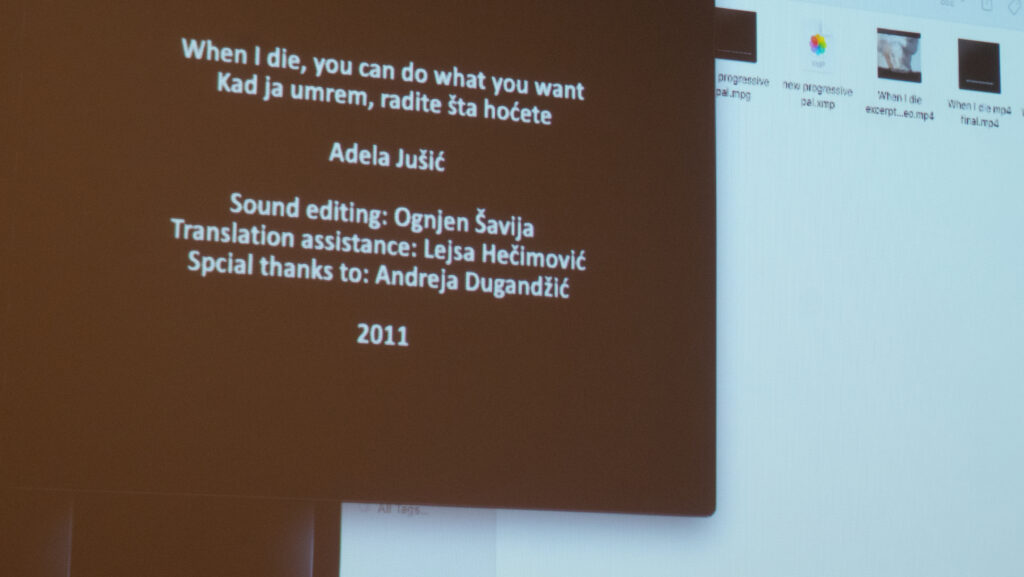
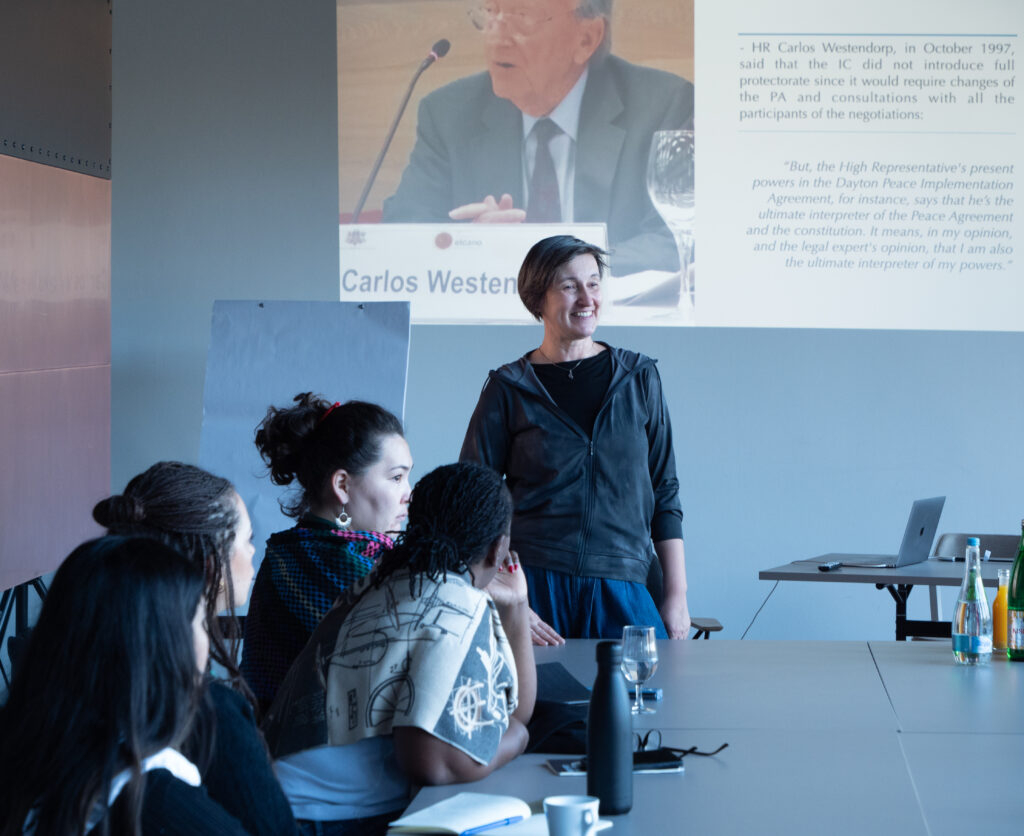
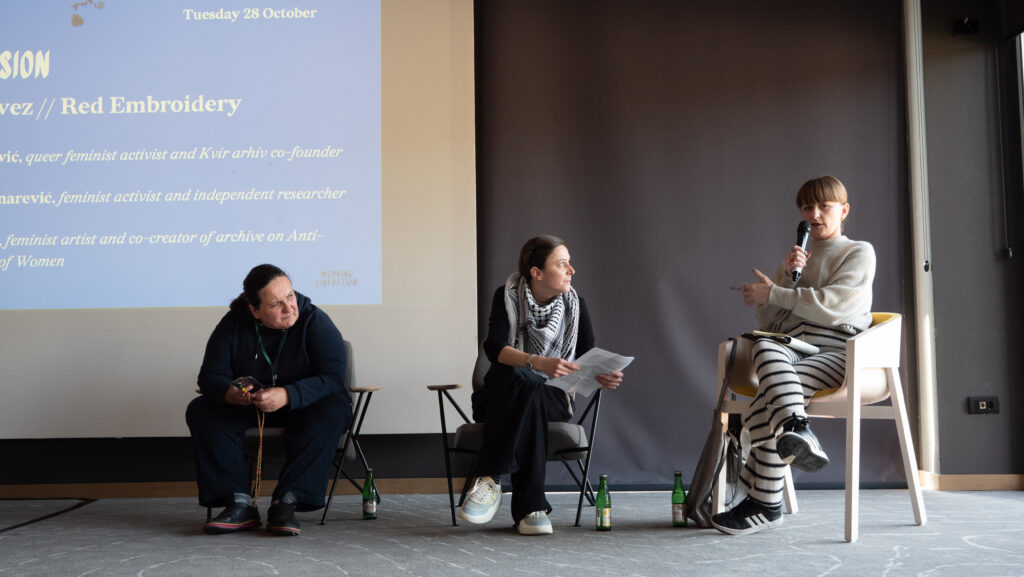
Bosnia, through the lens of those impressive activists, taught us profound lessons of cross-border, cross-ethnic, queer feminist solidarity and organising, enlarging our collective understanding of liberation.
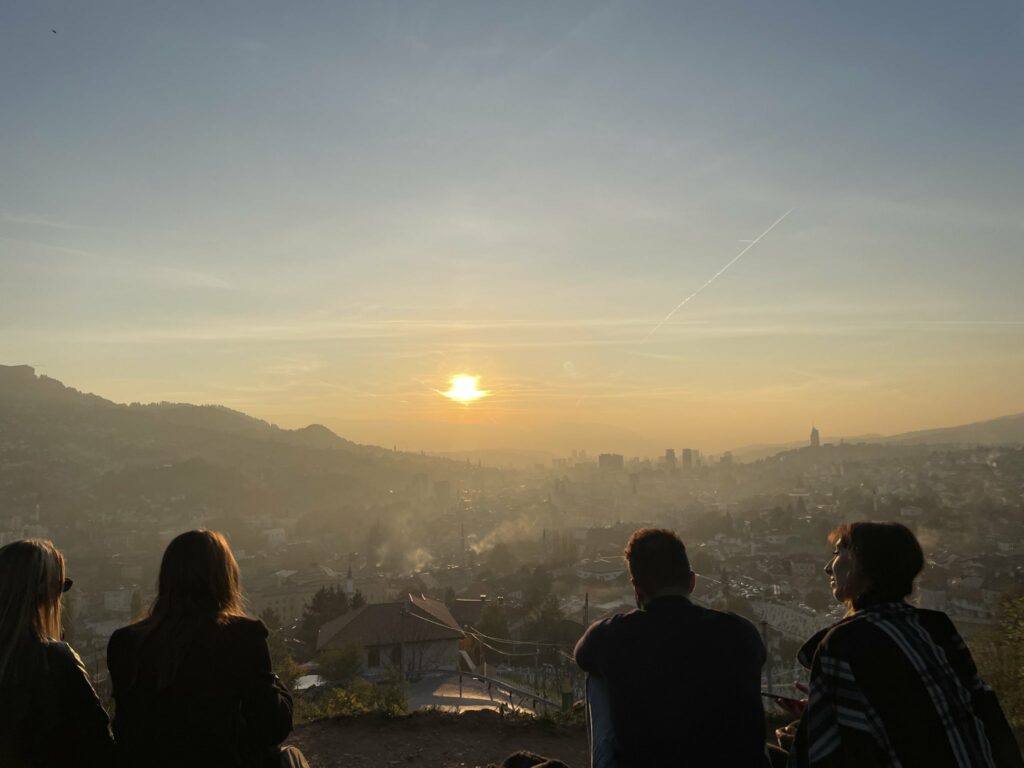
Discussing digital injustices
The week was a unique opportunity to discuss the multiple shapes digital injustice takes and to map the intersection of harms across movements. We had workshops tackling a wide range of topics, and we share just a selection of these below:
- environmental justice themes such as "Exploring intersections of community and socio-environmental data infrastructures" facilitated by independent researcher Madhuri Karak, and Anti-extractive and Anti-militarist Solidarities: Down the Supply Chain, Into the Earth, facilitated by Marie-Therese Png from the Oxford Internet Institute and Embracing creative and embodied modalities for ecological and digital justice, facilitated by Maya Richman from Green Screen Coalition; - digital welfare state challenges in the workshops "Digital essential services and online social control: joining forces for a social class perspective" by Jessica Machacova from the European Anti-Poverty Network; - digital borders with a workshop organised through the lens of the artist Maithu reflecting on their work fromBattlefields toRoborders which deals with border violence and border technologies; - the geopolitical context in which we find ourselves and the role of digital technologies with a workshop on the "Roots of Violence in Sudan: Scrutinizing the Naive Narratives Surrounding the Sudan War" facilitated by Ahmed Isamaldin from Sudan Uprising Germany and a lightening talk on Algorithmic governmentalities presented by the anthropologist and architect Sénamé Koffi Agbodjinou; - queer justice in the digital age such as "Queer over Fear: Community resistance for LGBTQ+ liberation in the digital age, facilitated by Paige Collings from the Electronic Frontier Foundation and centering a disability justice lens on questions of AI and technology, facilitated by Kave Noori from the European Disability Forum.
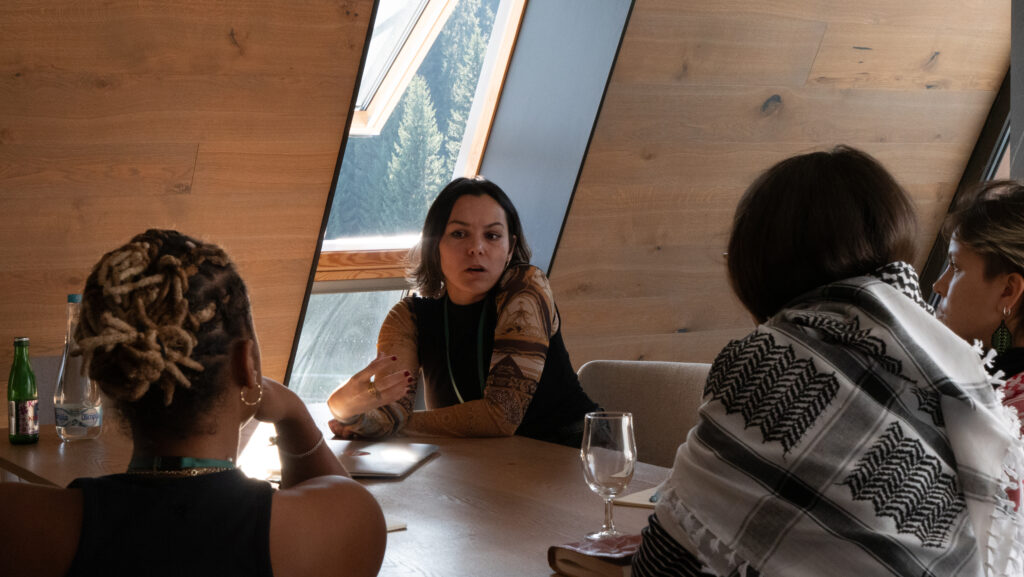
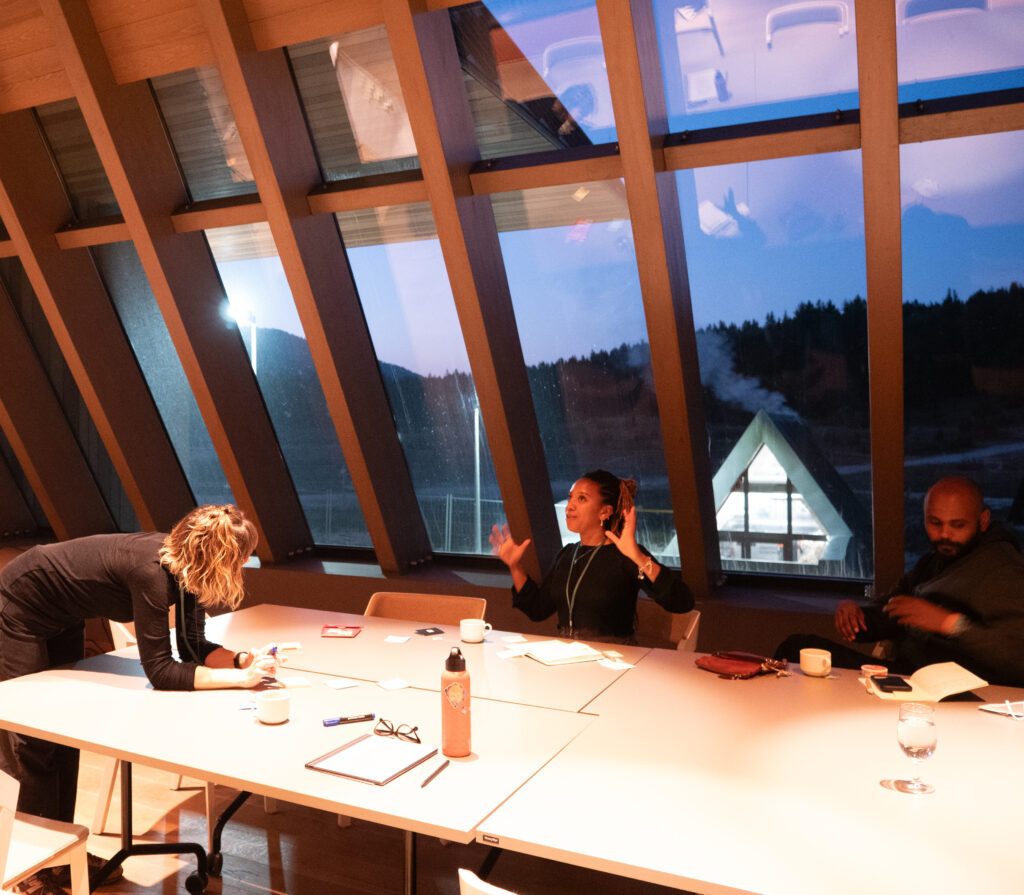
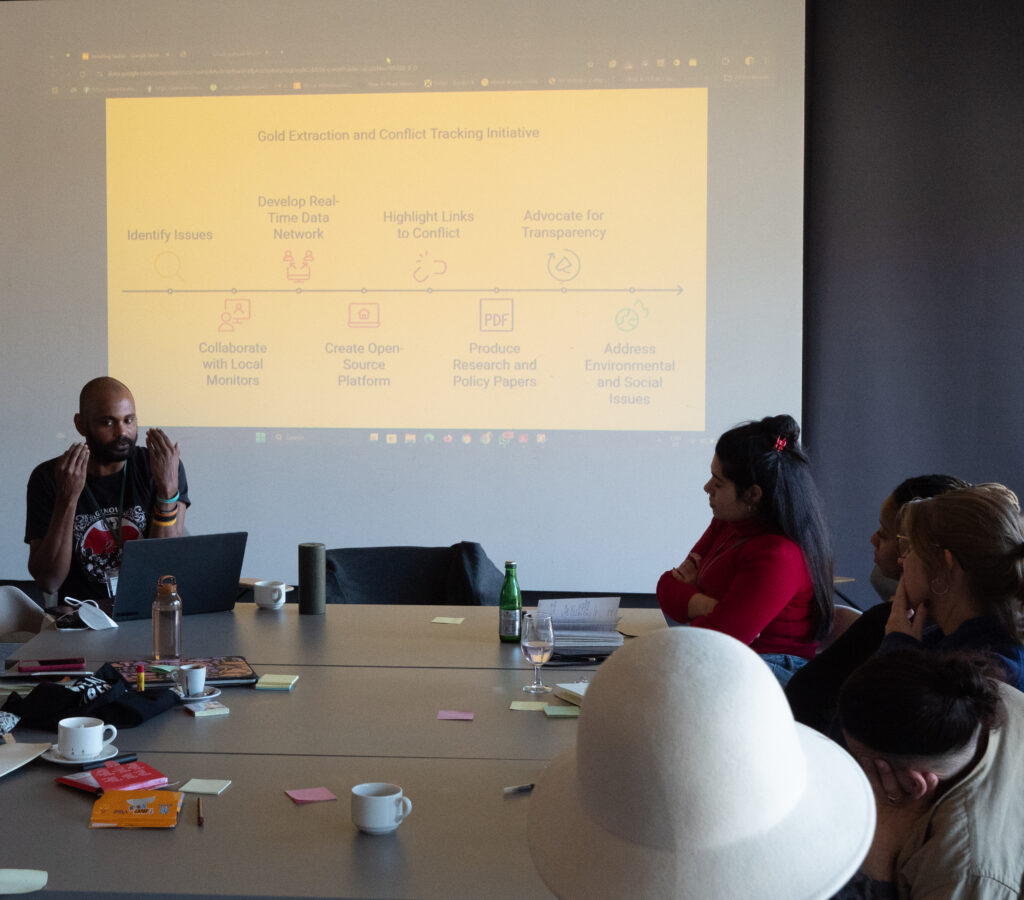
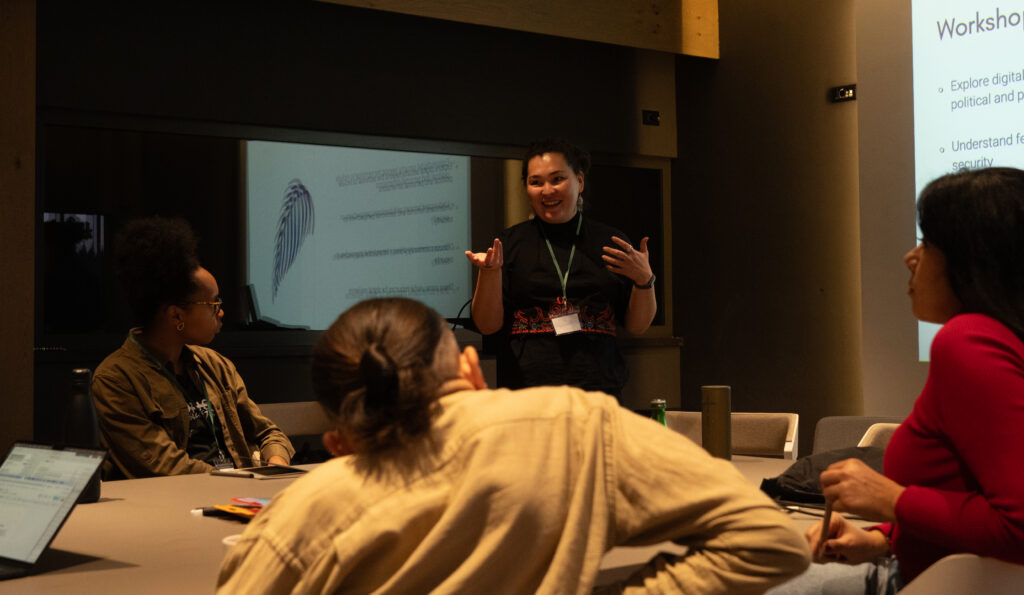
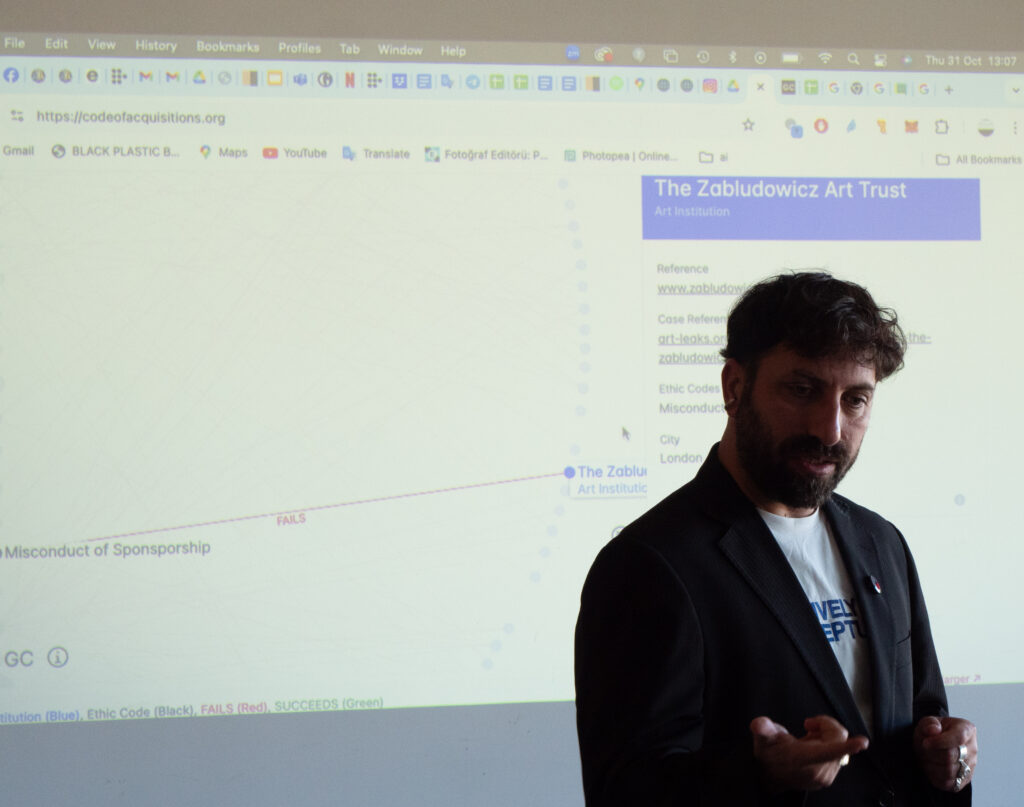
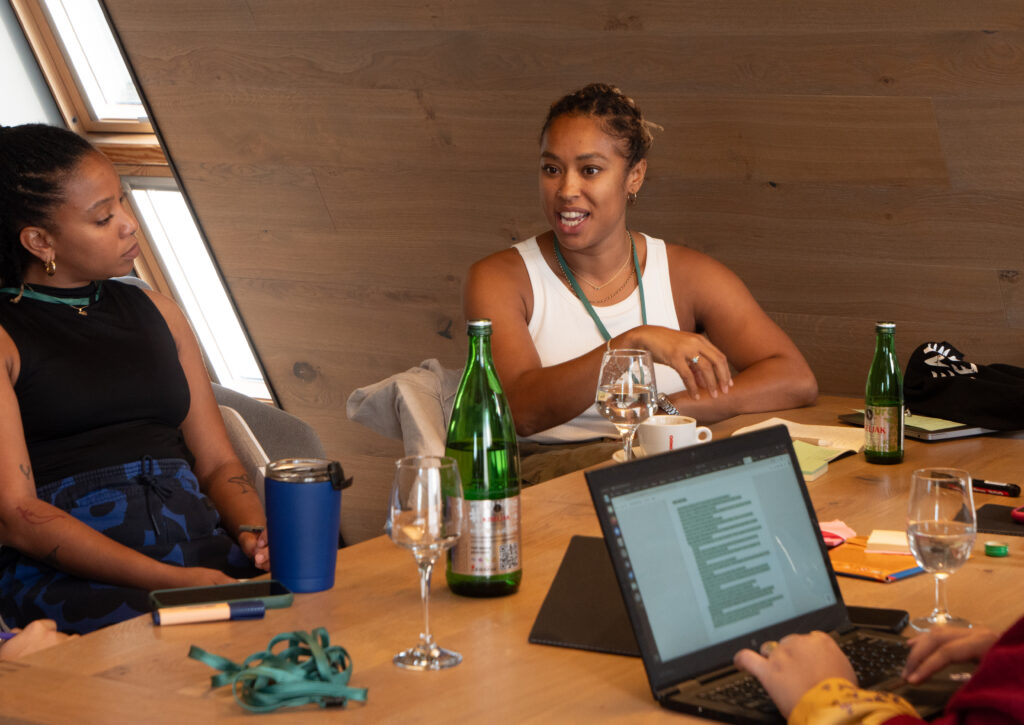
Sharing tools for liberation
While it was important to discuss the different ways in which digital technologies participate and amplify systems of oppression and understand how to best join forces and determine opportunities for joint work, crucial to the design of the retreat was to enable a space in which tools for liberation where shared. The sharing of tools and practices was wide and rich and centred building infrastructures of care and imagination as instruments of liberation. These included, amongst others, workshops on:
- Dreaming Beyond, facilitated by Sarah Diedro from Dreaming Beyond AI and Writing Tomorrow(s): Using Fiction Writing as Tools for Imagining and Building Just Futures, facilitated by Likhita Banerji from Amnesty Tech;
- Exploring alternative forms of justice, facilitated by Hope Chilokoa-Mullen from Erase the Database UK and The 4Front Project and Sara Chitseko from Erase the Database UK and Open Rights Group;
- building Advocacy strategies from an abolitionist perspective, facilitated by Sarah Chander from Equinox Initiative for Racial Justice;
- building an online platform to collectively expose good and bad practices of institutions in a workshop on Code of Acquisitions facilitated by the artist Ahmet Öğüt;
- Resisting Digital policing, a toolkit facilitated by Zara Manoehoetoe from Kids of Colour;
- Raising archives collectively: Trans*feminist servers through an anti-colonial approach facilitated by Iyo Bisseck from Dreaming Beyond AI;
- How to work with communities and organisers as lawyers facilitated by Hanaa Hakiki, a migrant justice lawyer and Danah Abueida from ELSC;
- building The Internets of Liberation: the political practices of decolonising the digital facilitated by Anasuya Sengupta from Whose Knowledge?;
- Archiving our resistance: Building digital futures for Romnja voices facilitated by Alba Hernández from Romnja Feminist Library, and Feminist Collective Romani Gender Experts;
- workshops on operational issues including Rethinking fiscal sponsorship with care and solidarity at the heart facilitated by Zara Rahman from InterAlia, Surviving leadership in the non-profit industrial complex facilitated by Claire Fernandez from EDRi, and Scanning the Landscape of Funding for Digital Justice - Where Are We and What is Next facilitated by Nino Ugrekhelidze from Dalan Fund.

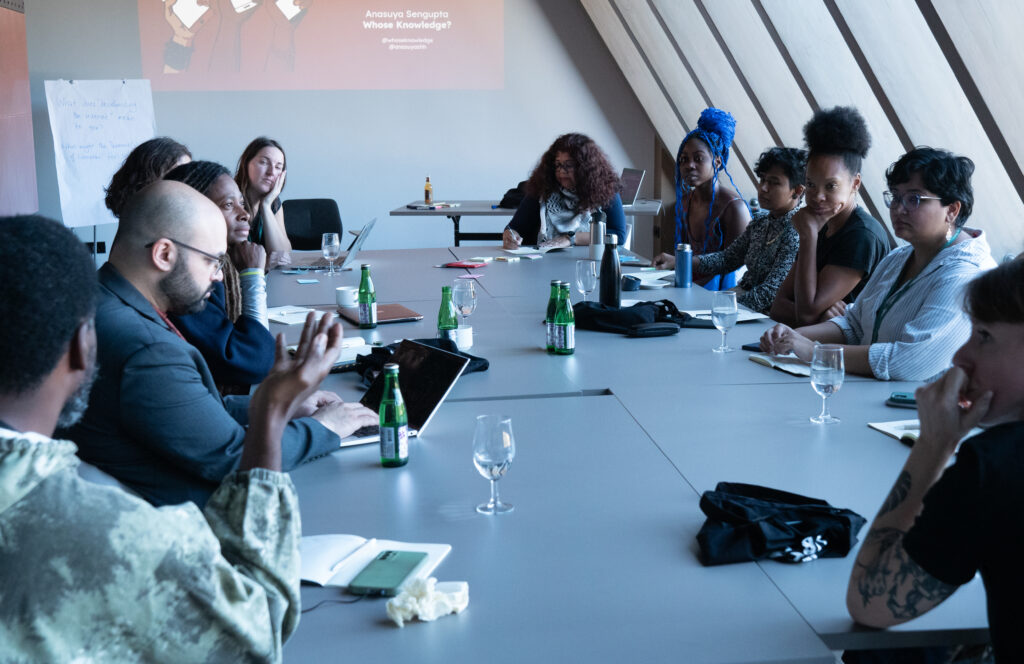
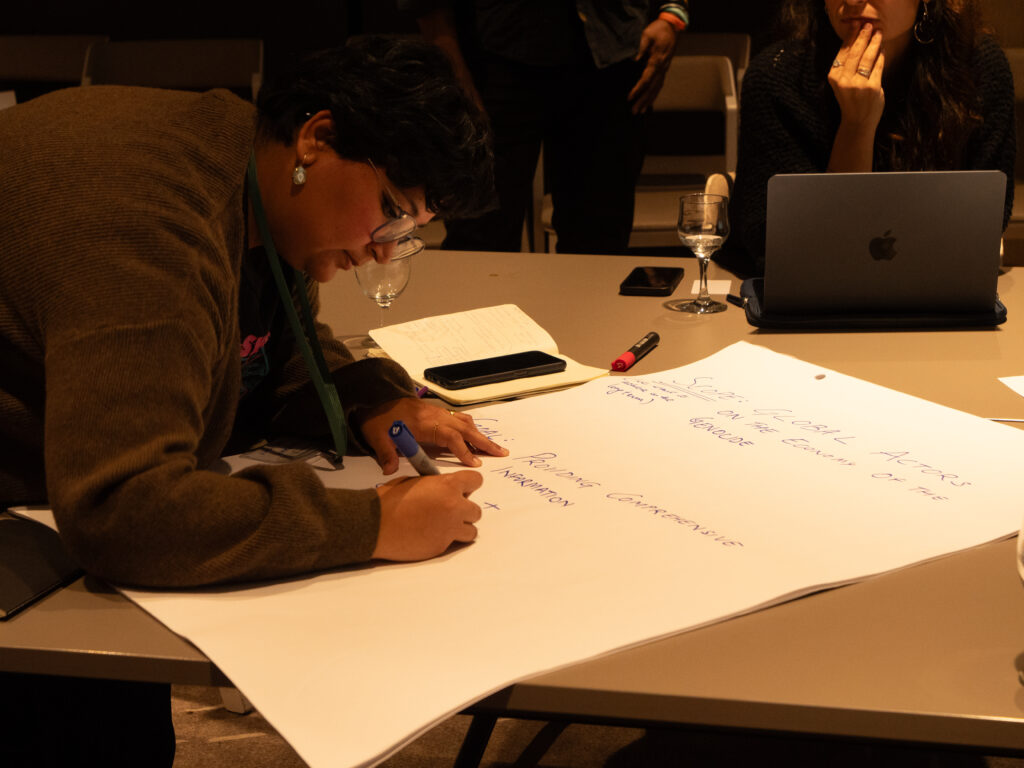

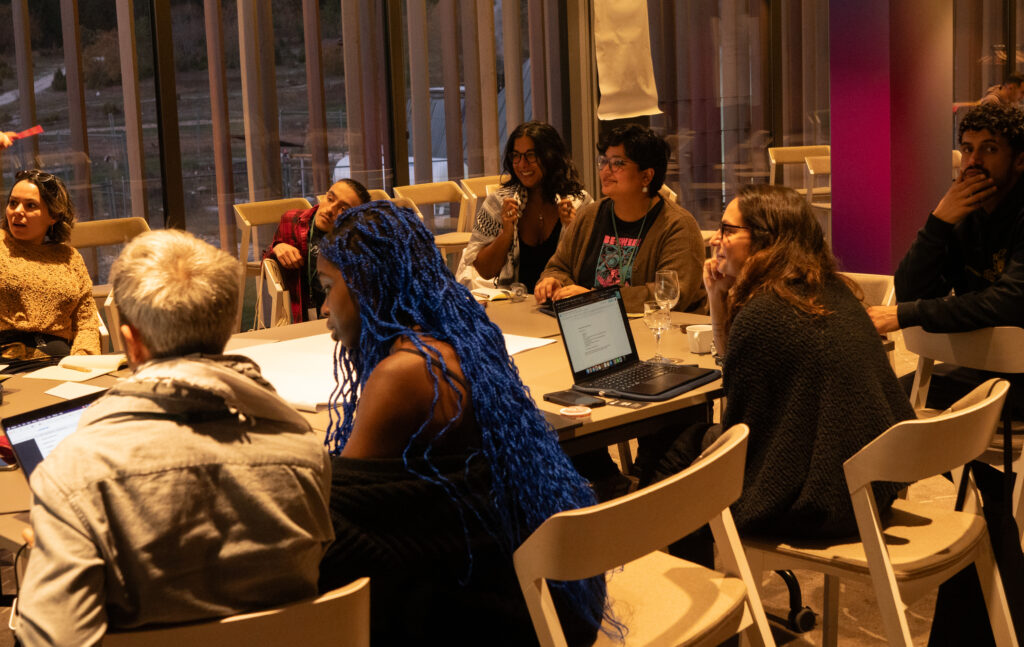
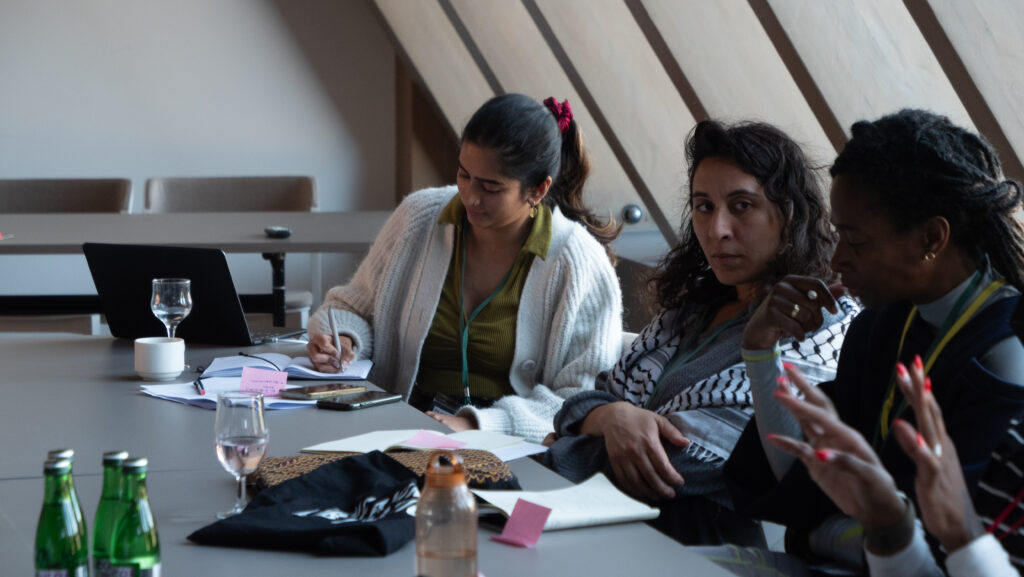
The agenda which was composed in its vast majority by the participants’ proposals, was comprised in the end of 35 workshops and panels. The abundance in the programme counters the often heard narrative that there is a lack of alternative visions for just digital futures – those visions, and often concrete ways to start implementing them, were everywhere during those five days. They are often just not sufficiently resourced. These were all amongst the many other conversations, outside of the main agenda, that filled the rooms of the retreat, with energy and interest from people in learning, sharing and building on our understandings of digital justice in different contexts.
“A conference of collective dreamers”
A friend of ours, to whom we tried to explain what the retreat was about, qualified it as “a conference of collective dreamers”. It feels very appropriate.
Hope is necessary for just changes, changes which uphold the promises of human rights for everyone. But it cannot be demanded or proclaimed. It happens when conditions are met to make it blossom. Too rarely does civil society in Europe invest in making hope grow by investing in the hope-workers, the people that work towards liberation, against all odds. Hope-workers, collective dreamers, they are imperative when thinking about digital justice both because technologies are, per definition, made out of the cloth of human dreams and aspirations, and because current tech developments often leave many people harmed by them with a sense of defeat and powerlessness.
Being with people who have resisted/ are resisting similar harms, finding peers to dare to dream and organise with, emboldened many of us to envision paths forward and maybe try roads previously not taken or forgotten.
The retreat was a space that we shaped as days passed, fitting our needs and desires – we saw the rooms slowly shift from the classical conference room arrangement to being filled with pillows and blankets, people sitting in circles on the floor, on chairs, lying around as they saw most comfortable, tables being displaced and replaced as sessions unfolded. While we watched films together – as we spent time together – we inhabited the place and it moved, joining our rhythms. We dismantled little by little and rearranged our shared world, energised by the feeling that collectively, we can transform things and be joyfully transformed by them.
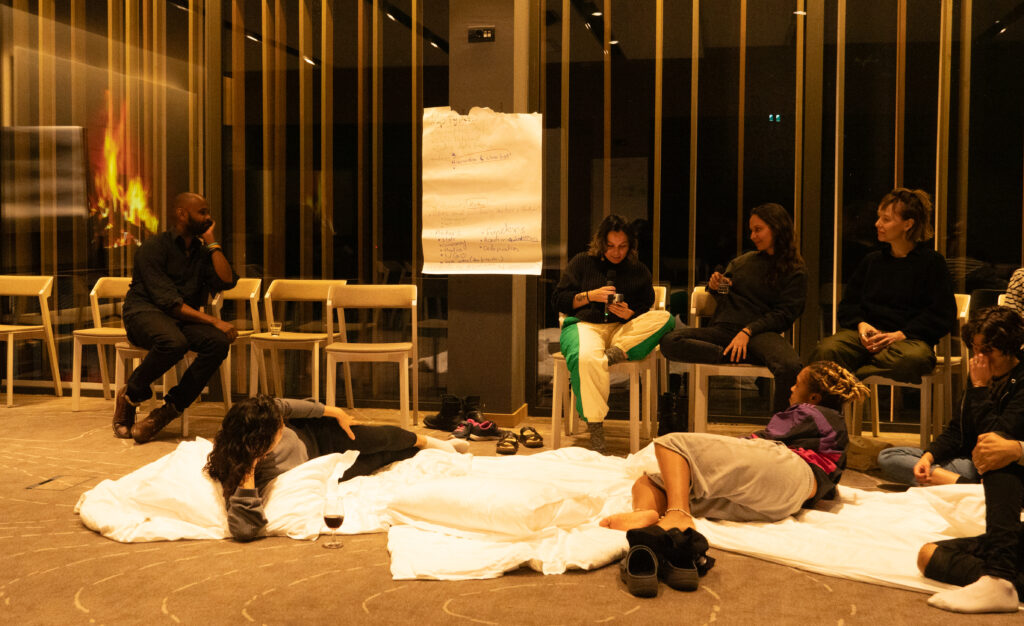
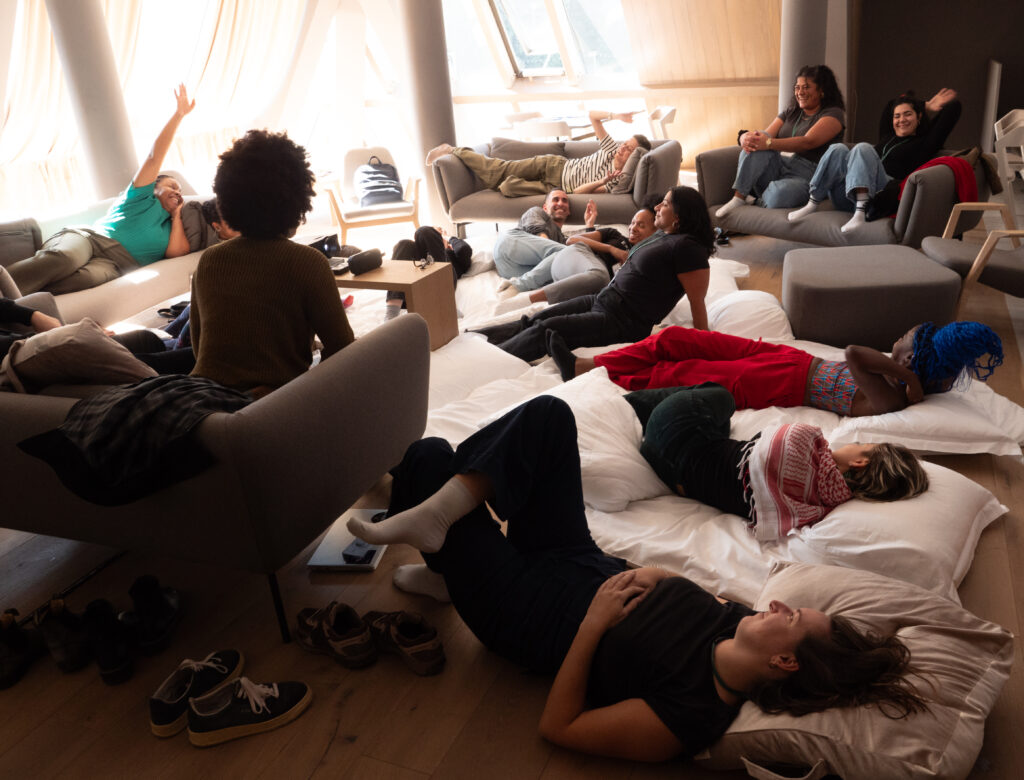
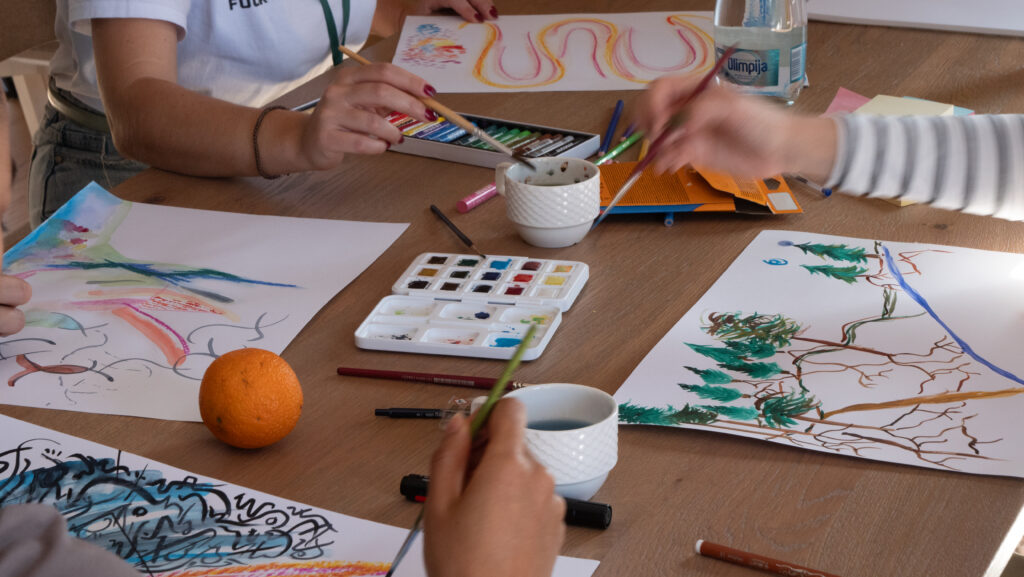
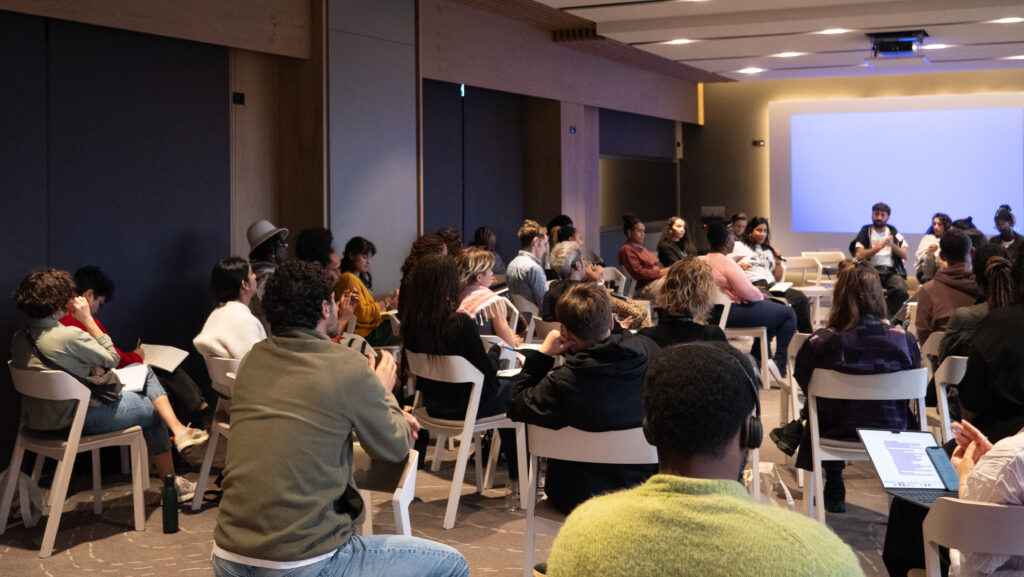
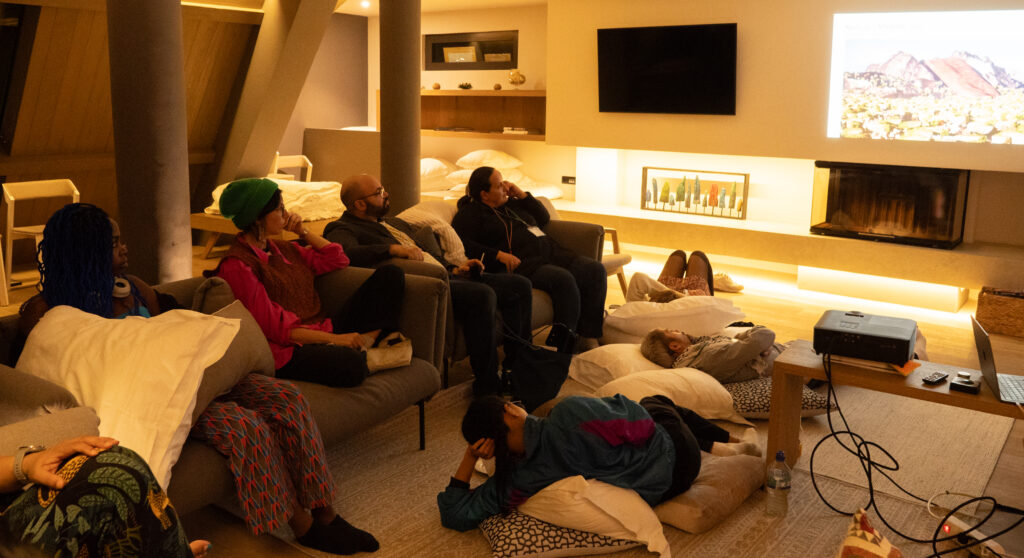
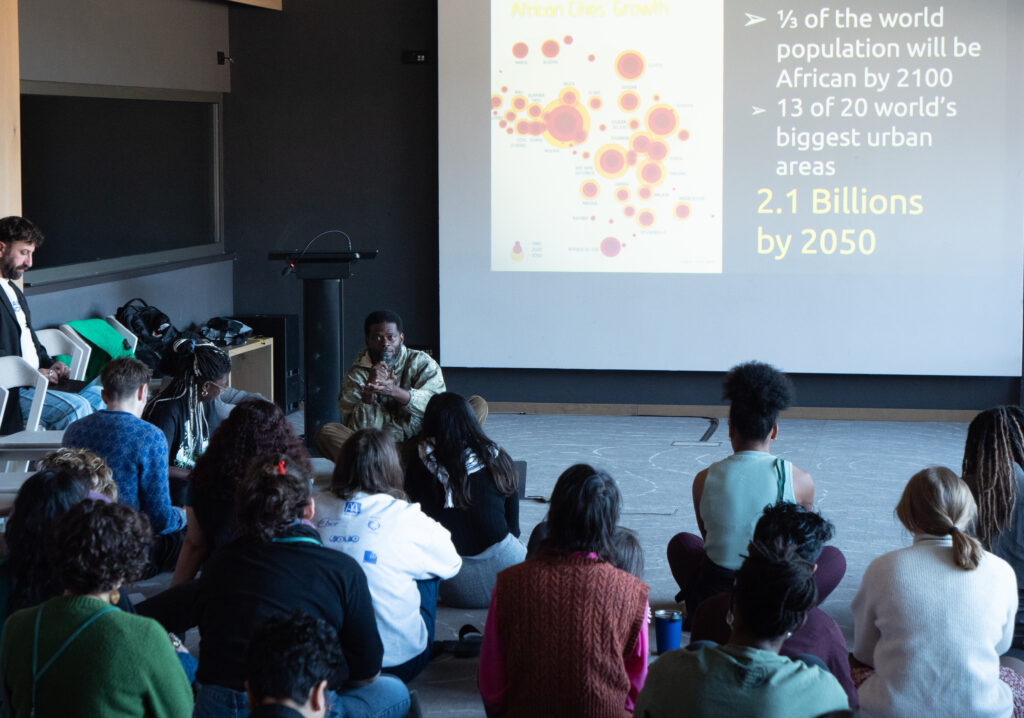
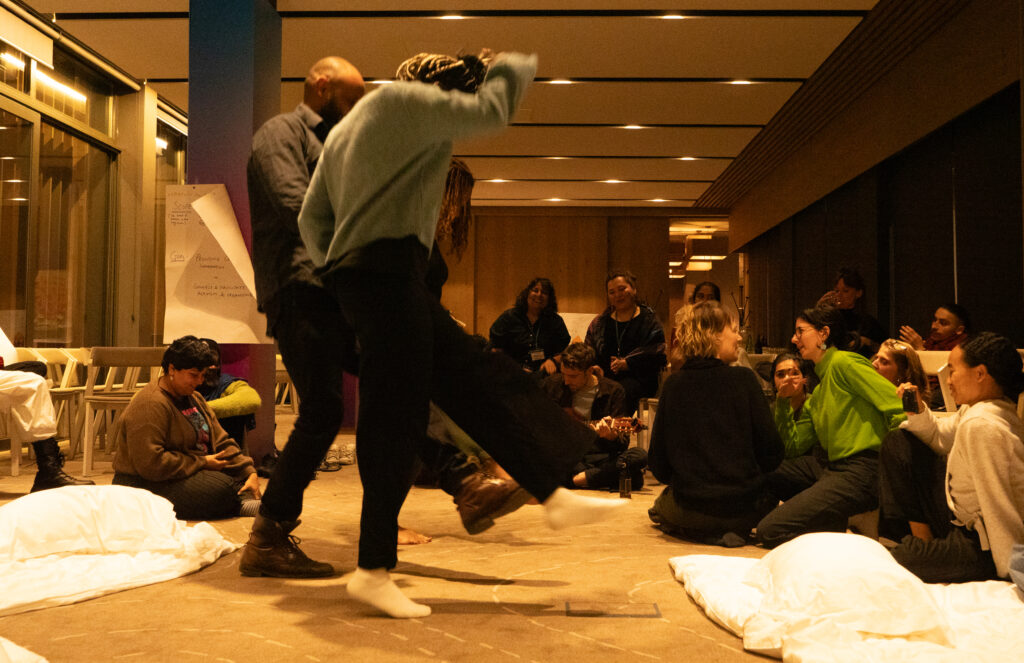
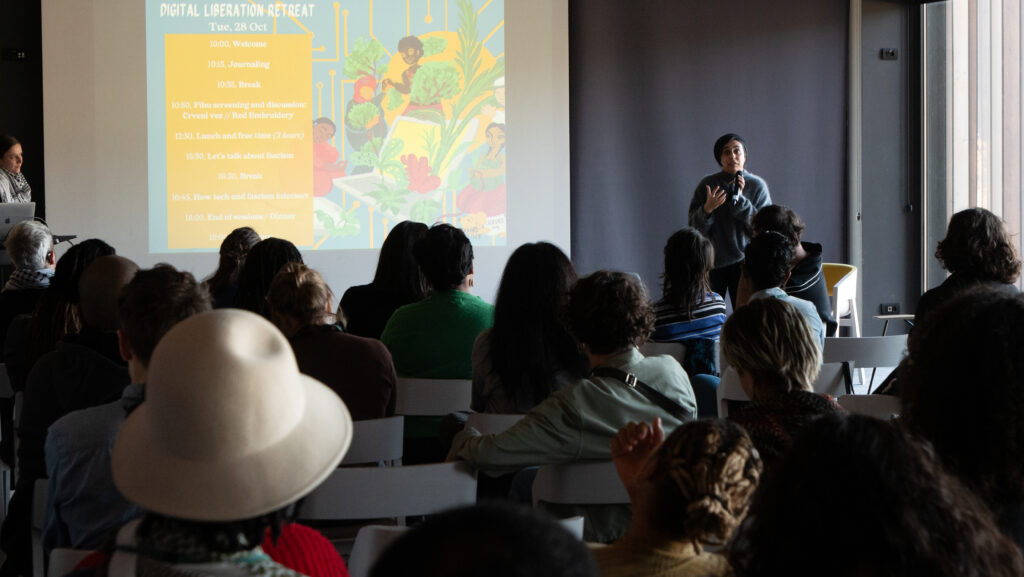
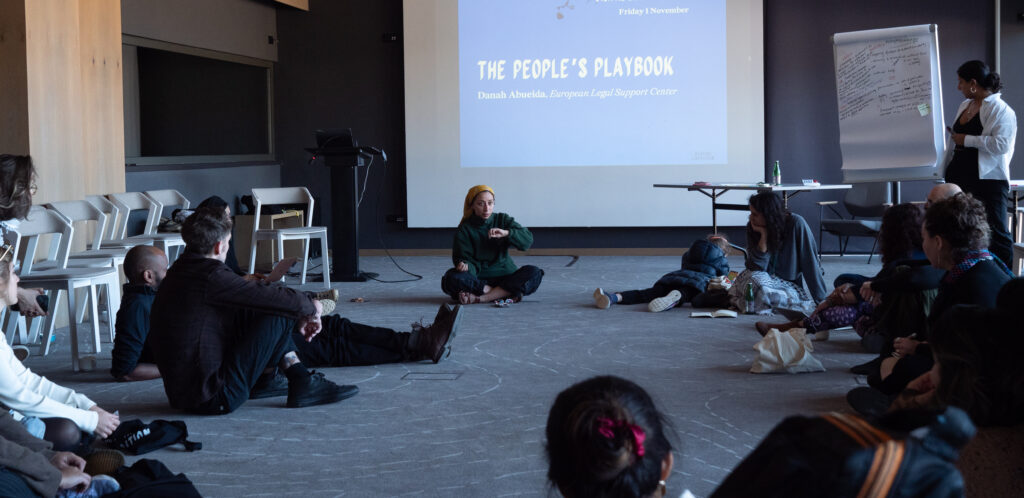
Many participants had to juggle multiple crises related to their work, geopolitical unfolding, or both. Being among people with whom to discuss it and find support and care made it more bearable and sometimes gave the strength to move forward, looking for communal answers to the issues, enabling connections between different realities to be made.
In a moment of constant loss, isolation, despair and violence, the retreat was a space filled with hope, energy, mutual care, vulnerability and laughter. Being for a week with so many people with a shared appetite for digital justice and an ambition for liberation, who are doing inspiring work using different tools for change, debunked the myth of our solitude and our powerlessness. Power was felt so often throughout those days. As we held each other, learned from each other, sang together, while we plotted collectively, as ideas for new projects arose and new needs or questions flowed and the hunger for more grew; as we were wishing for more conversations, time, exchanges, more of these worlds that we could see taking shape before our eyes – what we felt so often, was power.
What comes next?
As people departed to return to their next destinations and homes, we balanced feelings of sadness in saying ‘see you again soon’ with the comfort of knowing that the community and solidarity that we had nurtured over the week was held together by genuine connections and commitments to continuing to organise together beyond the mountains in Sarajevo.
The retreat provided the conditions for us to deepen our understandings of issues and existing knowledge and practices, nurture our creativity to imagine beyond what we do know and are already doing, and seed opportunities to work collectively in different formations, going forward to advance our different visions for digital justice. Several themes emerged as anchors for ongoing organising including:
– operationalising abolitionist approaches to challenging digital injustices;
– digitising a collective mapping on big tech supply chains and a elaborating a counter map of anti-extractive and anti-militarist movements and strategies;
– mapping the supply chain structures of the digital war economy in Europe;
– co-creating trans*feminist servers using anti-colonial approaches;
– building solidarity infrastructure for movements and strategising on resource mobilisation tactics;
– supporting the emergence of a coalition of Romnja feminist activists on digital justice issues.
These are just a few of the conversations we know people are taking forward, but there are many others – started in the various workshops, discussed on walks in the forests or swims in the pool, over food during the breakfasts, lunches and dinners we spent together etc. There is something beautiful about knowing that as people departed, there are these lines of connection that have been strengthened and in many cases formed for the first time, that will keep us nourished and motivated in the ‘inbetween’ times, and is a network we can call on when we need material support and solidarity, ideas and answers, care and love.
We want to end this blog post, sharing the verses from the Congolese poet Labou Tansi a participant shared in our Signal group, to help express what they saw and felt during the retreat:
“So that was what it was like
to get out of the “raw life”
and believe in all these hearts, which form choir within us!
This therefore,
proof that there is no nothingness.
…
All my flesh leans into you :
we founded the anti-hole…
The soul is us without words. “
We are so immensely thankful.
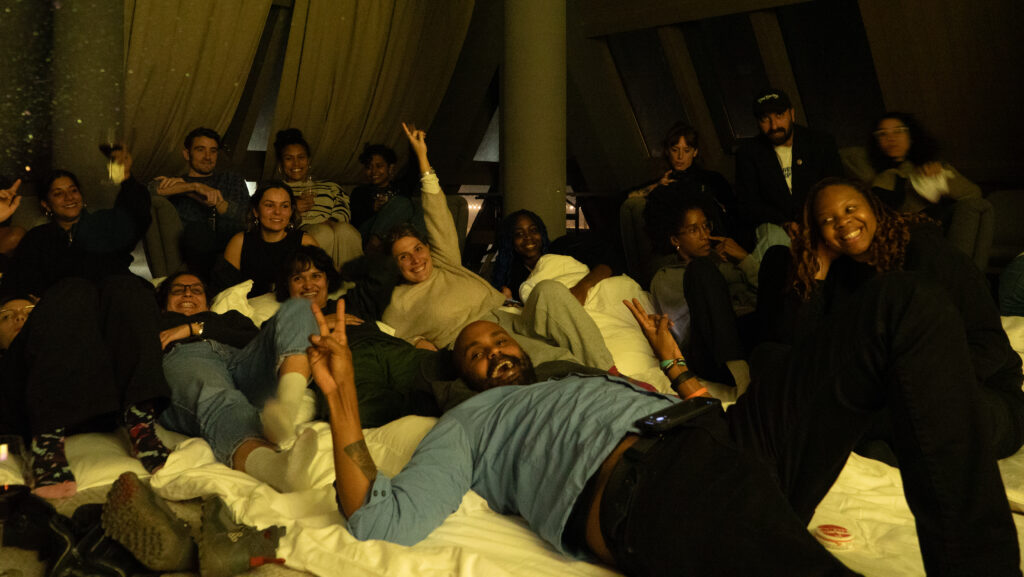
Pictures by Alice Z. Jones
